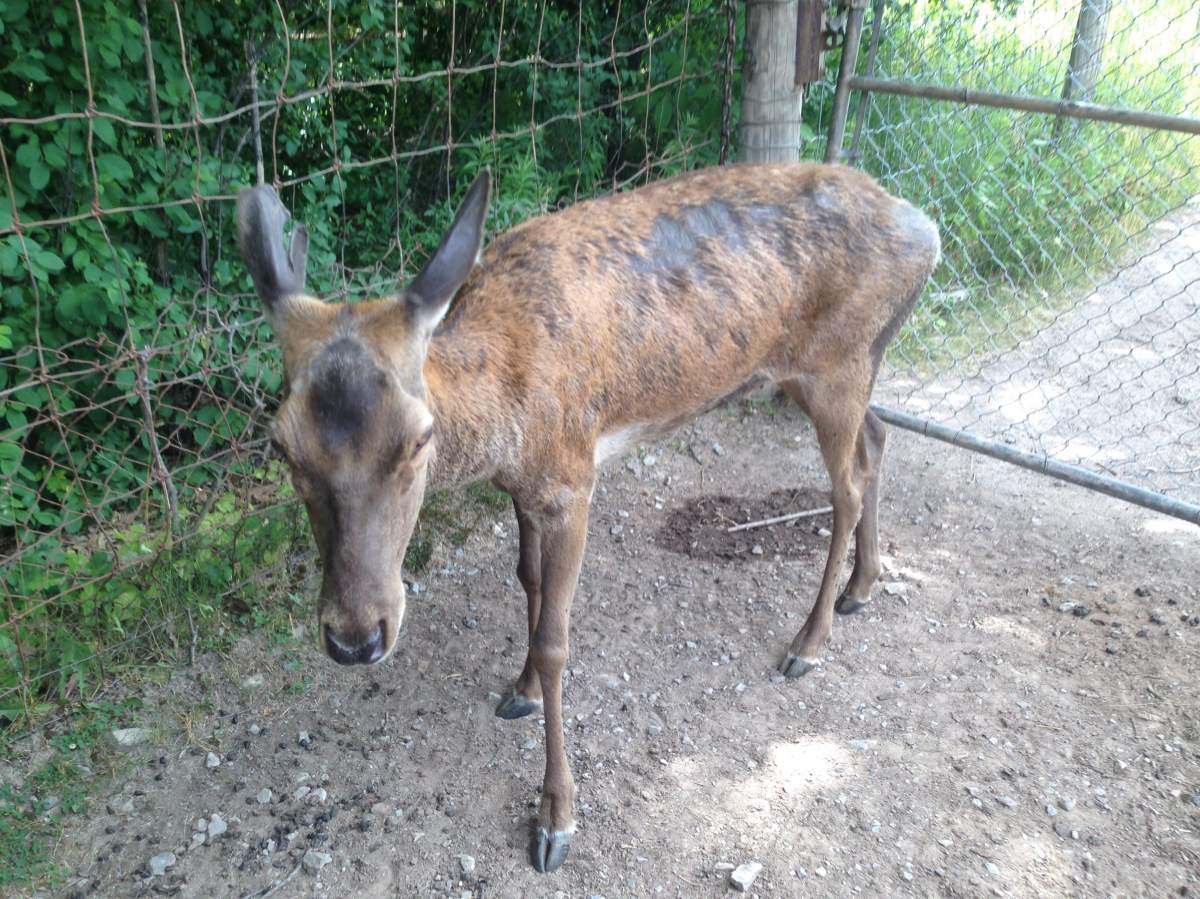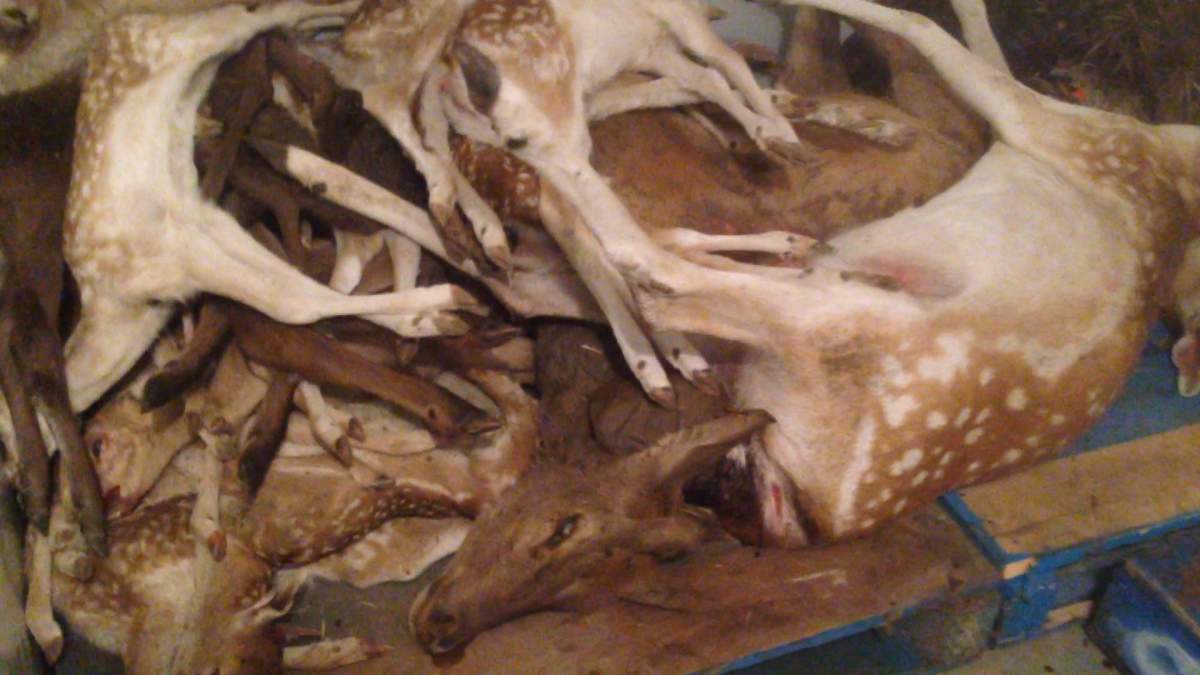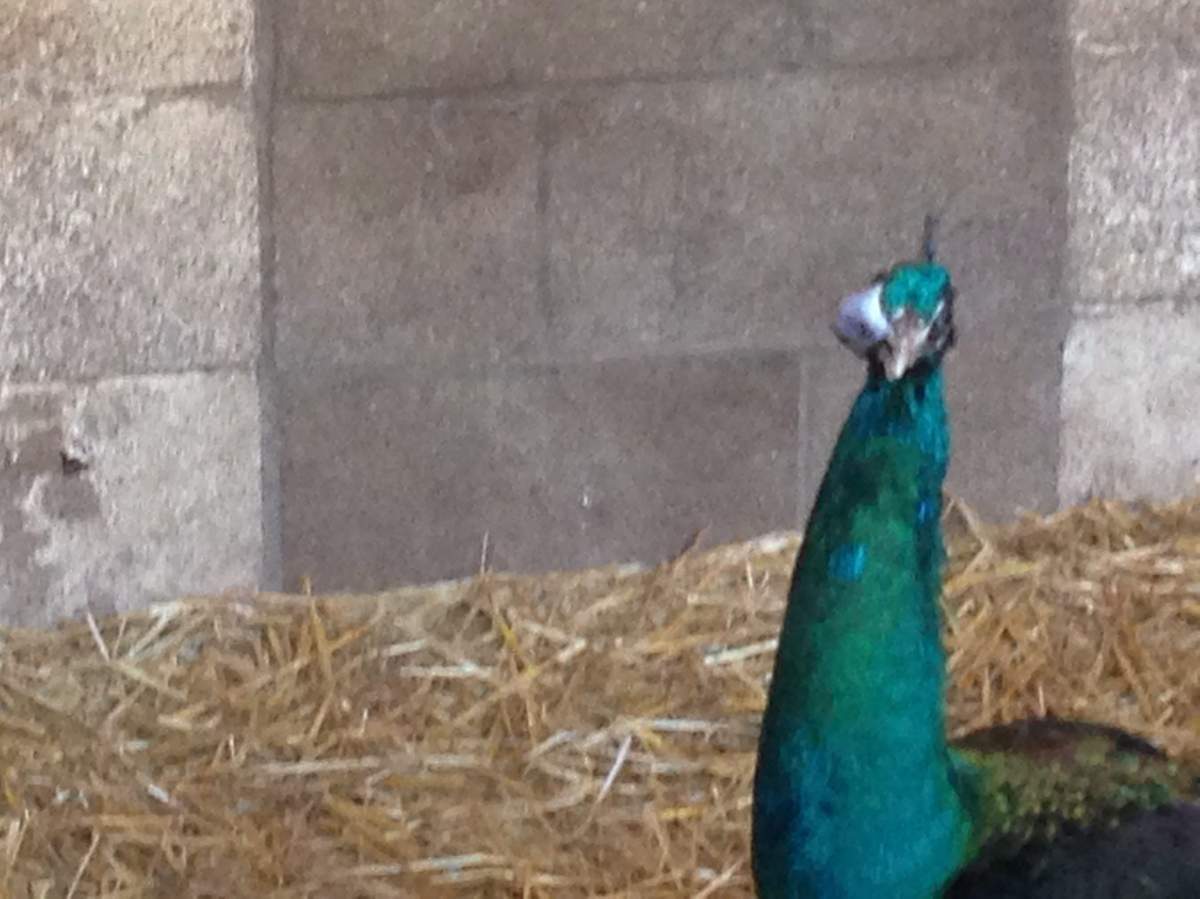A complaint that led Ontario’s animal welfare agency to investigate Marineland accuses the tourist attraction of cruelty against several species, alleging there was a “highly unusual” amount of land animal deaths for a zoo, several deer that didn’t get proper medical care, sick bears and a peacock with a growth near its eye, The Canadian Press has learned.

The Ontario Society for the Prevention of Cruelty to Animals laid five animal cruelty charges, relating to alleged cruelty against its black bears, guinea hens and a peacock, against the Niagara Falls, Ont., theme park on Nov. 25. The agency said its investigation is ongoing and further charges are pending.
READ MORE: Marineland charged with 5 counts of animal cruelty by Ontario SPCA
Marineland denies the allegations in the complaint and says it plans to “vigorously defend” itself against the OSPCA charges. A court appearance is scheduled for Jan. 26.
None of the allegations or charges have been proven in court.
The complaint by an animal rights group that both Marineland and an OSPCA source say spurred the inspection alleges other species, such as red and fallow deer, are also mistreated and dying in abnormal numbers.
The California-based group, Last Chance for Animals, sent the OSPCA a 35-page complaint, dated Sept. 26, that includes allegations, photographs and videos from a former Marineland employee.
READ MORE: Bob Barker wants Marineland killer whale included in Ontario’s proposed orca ban
The Canadian Press has obtained a copy of the complaint, including copies of the photos and videos that are part of the complaint. The news service has also obtained copies of the photos and videos from the former employee with metadata indicating they were taken on Marineland property this summer.
The company also suggested the complaint was part of a smear campaign by a former employee, saying the person it believes is responsible was fired for poor performance and inappropriate behaviour and arguing the images and videos may be doctored.
“(Last Chance for Animals) is working together with the fired former employee to exact revenge over his firing and advance their radical cause and goal to shut Marineland,” the company wrote in response to detailed questions from The Canadian Press.
The former employee, who requested anonymity for fear of being sued, said he quit on good terms and is not an animal activist and doesn’t want the park to close.
Last Chance for Animals, meanwhile, said its goal is not to shut down Marineland, though it does believe “wild animals should be left in the wild.”
The group wants “to free the animals that are exploited for entertainment and suffer cruel confinement in unnatural enclosures,” said spokesman Adam Wilson, who submitted the complaint to the OSPCA.

Get breaking National news
“Marineland could thrive as a theme park without animals focusing on other forms of non-exploitative entertainment,” Wilson said.
Since it opened in 1963, Marineland has grown into a large amusement park with one killer whale, beluga whales, dolphins, walruses, seals, sea lions and other animals such as deer, bears, birds and fish. It also has rides.
The former employee worked there for a month over the summer, but said he grew dismayed after two weeks and reached out to the animal rights group because he believed management would not help.
Every day, on average, the man – who worked with the park’s land animals, including deer, bears, bison and birds – picked up carcasses of dead animals, he said in an interview. Some of those deaths would have been preventable, he said.
The worst incident, he said, came when he and a supervisor came across a fawn lying in the dirt in a back lot.
“There was a hole near its umbilical cord, but the umbilical cord was still attached and the baby deer looked over at us,” he said.
“We didn’t treat the baby deer and it was very hot out and it was not in the shade and my supervisor said ‘We’ll just pick it up tomorrow,’ meaning when it was dead. And I picked it up the next day.”
The complaint filed with the OSPCA said Marineland should have treated the fawn or euthanized it to comply with animal welfare laws.
Marineland said it has rules about reporting animals in need of care and does not “leave sick deer to die unattended.”
The company added it only euthanizes deer when animal care staff and senior management deem that it is the only humane option.
“This happens very infrequently and only when it is in the deer’s best interest,” it said.
The animal rights group raises concerns about how fallow deer are kept and bred at Marineland, describing the facility as a deer “factory” where up to 400 deer are held and allowed to reproduce on a lot away from public sight.

“The witness reportedly discovered at least two dead land animals every shift, and often more,” according to the complaint. “Not only is this a highly unusual amount of deaths for a zoo, but Marineland’s failure to conduct any examination into the circumstances of the deaths of their deer, elk, or fowl, is also an uncommon practice.”
“By allowing these animals to breed indiscriminately, not maintaining birth or death records, and by failing to inquire into the causes of death, Marineland operates like a factory without regard to the welfare of the individual animals.”
Marineland said it provides appropriate care to its animals every day of the week.
“If the mortality rate suggested by this comment were true, Marineland would find itself without land animals in short order,” Marineland said.
The complaint also alleges several red deer at Marineland are “injured, underweight, missing large patches of hair,” and that the company didn’t provide adequate medical care.
Marineland said it has a herd of about 200 red deer and none were in distress.
“They were found to have an acceptable body condition overall during their most recent veterinary examination, with only three requiring to be culled due to advanced age or health reasons,” Marineland said.
The complaint also sheds light on what led to the OSPCA investigation that resulted in charges, describing in detail the alleged mistreatment of bears and a peacock at the theme park.
Marineland faces one count of permitting a peacock to be in distress, one count of failing to comply with the prescribed standards of care for a peacock and two counts for failing to comply with the prescribed standards of care for guinea hens.
The facility also faces one count for failing to comply with the prescribed standards of care for about 35 American black bears, including failing to provide adequate and appropriate food and water for them.
According to the complaint, the peacock’s eye was “bulging and covered with a white membrane,” an infection for which it was never treated.
But Marineland said it was nothing but a “harmless growth” and that “at all times the peacock was eating well, behaving normally and otherwise healthy” and “was not in distress or pain.”
Though a veterinarian initially recommended euthanasia, Marineland’s vet later decided to remove the mass instead, believing the animal could be saved, the company said.
As a result, Marineland said, “Petey” the peacock will “lead a healthy long life” and posted a photograph on its blog it said was taken earlier this week that “attest to his health.”
The bears, meanwhile, allegedly suffer from chronic diarrhea because they are fed a mixture of “expired and often mouldy produce (with stickers still attached.)”
“The majority of the food, including previously frozen fish, is stored in an unrefrigerated area, in unwashed and unsanitized containers,” the complaint read.
An attached video shows a bear defecating what appears to be loose stool. Other footage shows boxes of produce with flies buzzing, and bags of dog food in a freezer next to piles of dead deer, a bison and birds.
“The condition is pervasive and the bears’ fecal matter is the consistency of water,” the complaint reads. “No medical treatment was provided to the bears for this condition.”
Marineland denied any bears suffered from chronic ailments, suggesting that any case of diarrhea would be temporary. It also defended the food given to the animals as high-quality and stressed all expired items are removed and its only fault is leaving the odd sticker on food.
“Marineland does not feed bears mouldy food, despite their natural inclination to eat virtually anything remotely edible, including rotting flesh in the wild and plastic garbage bags at dumps,” Marineland said.
Marineland also says “it has been our findings that bears are less concerned about how crunchy their lettuce is than Caesar salad aficionados.”
It also denied storing food next to animal carcasses, saying the dog food is not for the bears and was meant for disposal. The dead animals are only stored in a freezer as they await burial, Marineland said.
“The way in which we dispose of our animals remains is respectful, humane and in accordance with the law,” Marineland said. “No member of the public has access to the freezer facility.”
In regards to the charges laid Nov. 25 against Marineland, an OSPCA official said it is believed to be the first time the organization has laid charges against the attraction, although its records don’t stretch back to the 1960s and 1970s.
Alison Cross, a spokeswoman with the OSPCA, said Marineland has received “several correction letters” over the past three years and the Niagara Falls company has complied with all of them.
The OSPCA also issued orders, but didn’t lay charges, after an investigation in 2012 when former employees went public with allegations of animal abuse among both its marine and land animals.









Comments